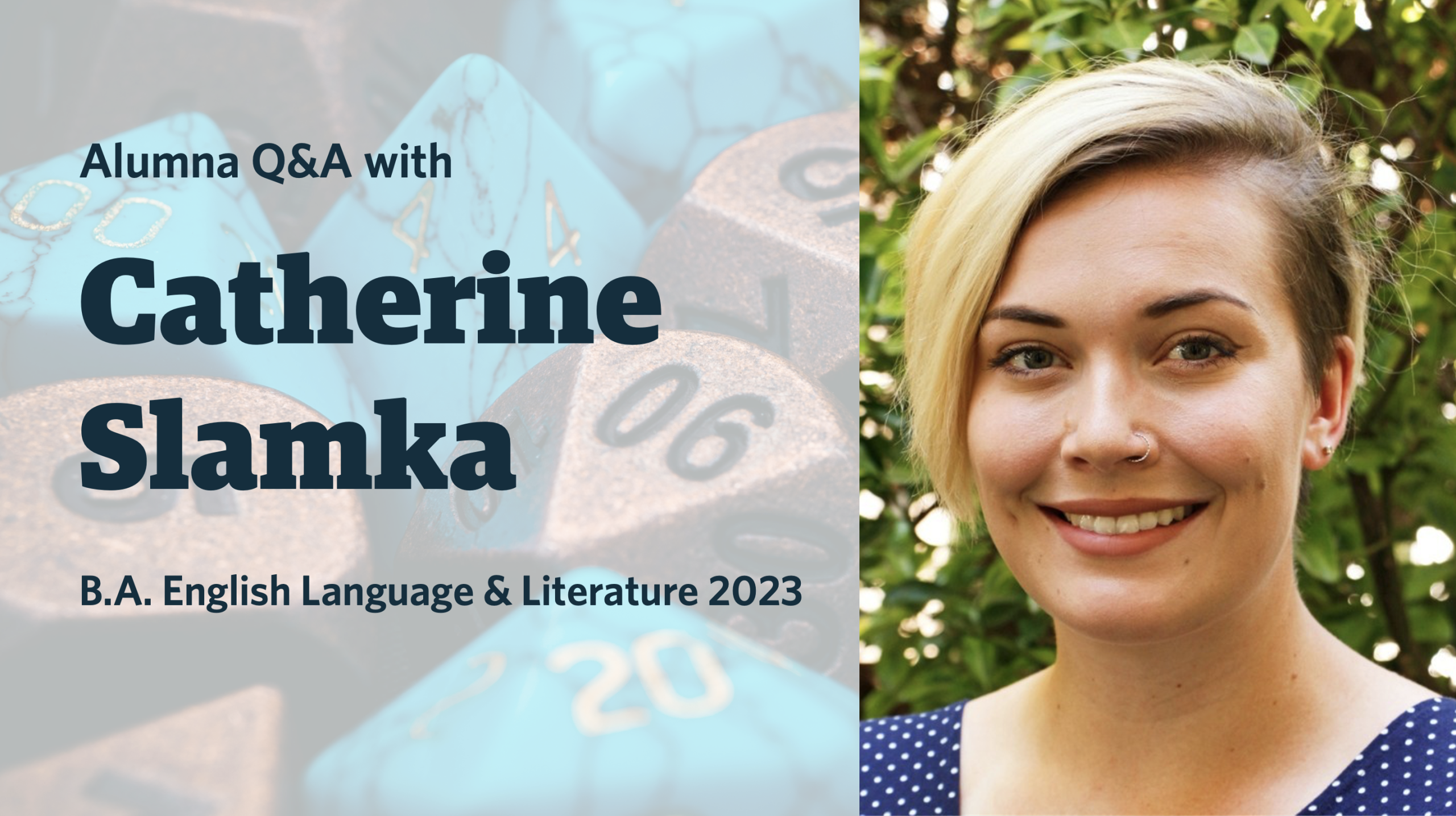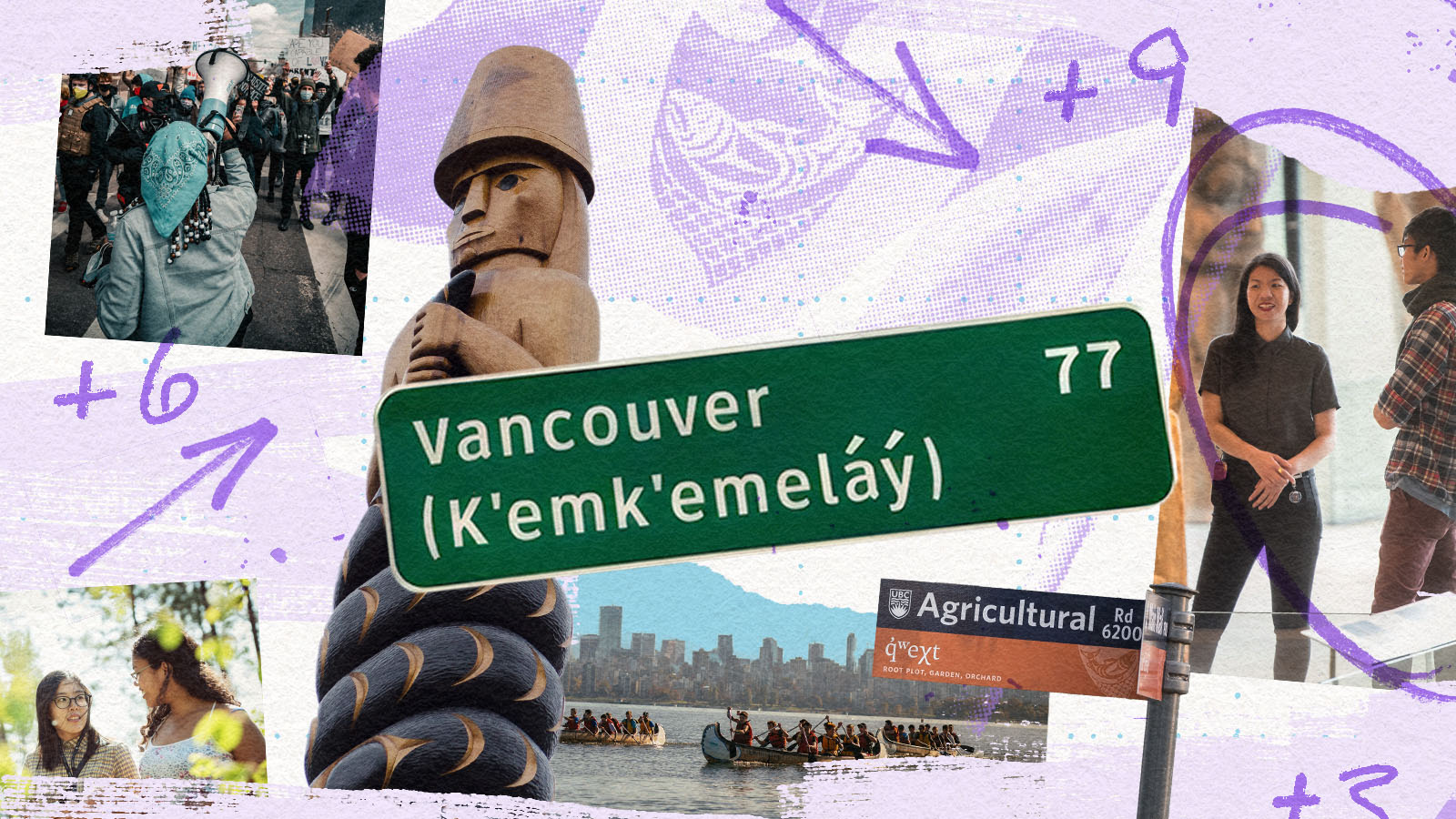

Catherine Slamka is a recent UBC graduate who majored in English Language and Literature. She completed three co-op terms while at UBC and now works as a Senior Associate Content Program Manager for Workday. In this feature, Catherine reflects on the importance of writing approachable, relatable content in the world of business and technology. She also talks about common misconceptions and assumptions around who can or will succeed in the job market. Read this Q&A to learn how an Arts education can inspire a combination of creative and analytic thinking that is increasingly relevant to career success, and its surprising advantage in Dungeons and Dragons campaigns.
What do you currently do for work?
I am the Senior Associate Content Program Manager for the Workday Community Content Experience team, which is the same team I did my Arts co-op with. I am extremely thankful for my co-op with them. This experience was the reason why my manager phoned me and asked me to apply for the job. It really showed me the importance of building strong relationships during your co-ops! In my current role, I still develop content, but I also get to support my team and use organization and communication skills as I tackle the management of our AGILE processes and stakeholder communications. As a Program Manager, it’s my job to have my finger on the pulse of all my team’s ongoing large-scale projects and programs, and ensure that everyone is organized and aware of all ongoing developments. What I love most about the work that I do is that I get to support the best team I’ve ever had the pleasure of working with. My work helps my team be more effective at their jobs while reducing their stress and workloads. It also lets me expand my network as I engage and strengthen relationships with international stakeholders across the entirety of Workday.
Why did you choose to major in English Language & Literatures?
I chose the EL&L program mainly for technical writing experience and a chance to explore more literature. I wanted to obtain the technical skills needed to seriously pursue a career in writing, which is why I also decided to participate in co-op, so I could get that much-needed foot in the door and put the skills I learned in the classroom to use.
What did you do as a co-op student?
I worked as a technical writer for the Community Content Experience Team at Workday here in Vancouver. I ensured customer-facing content matched Workday’s style guide in terms of overall presentation and language. Previously, I also worked as an Academic Continuity Rover with UBC’s Faculty of Science, where I assisted with writing technical guides for learning technology and helping professors and students with their questions related to learning technology.
Most of my family works in technology as software engineers, web developers, and programmers, so I’ve always had an interest in technology. I was drawn to these roles because I wanted a challenge and a good opportunity to expand my skillset.
What are some skills you gained in your major that helped you succeed as the Academic Continuity Rover?
Effective writing goes beyond the words you use, and proper formatting plays a significant part in legibility. The literary aspect of my studies helped to develop my writing voice and taught me how to structure clear and coherent arguments. It also taught me to think outside the box and apply more creative perspectives to my work.
Writing is everywhere and can transcend even niches such as programming and technology. For every program’s back-end code, there is a front-end that needs to be user-friendly and a user guide that needs to be easy to read, approachable, and effective at educating people. Without that, the code wouldn’t matter, as nobody would be able to use it for its intended purposes.
“The EL&L program taught me the importance of words and showed me how far-reaching and necessary language is, demonstrating its validity as a serious career path. Literature shows you the significance of language and how it can impact uptake. Even a single sentence may cause a multitude of different impressions and requires careful thought.”
What advice do you have for students who are similarly looking for ways to apply what they learn from an Arts degree to a variety of career fields?
I highly recommend keeping a portfolio of your work online. Essays, short stories, blogs, anything that shows your voice and how you structure content and approach communications. The co-op program and internships are also valuable resources for getting your foot in the door. They may just land you the job of your dreams! Writing often and paying attention to what you read is also important, as many writing and communications jobs focus on presentation as well (get to know and love using headers). I would also strongly suggest doing volunteer editing, as that can be great practice if you are ever interested in a career in editing. Finally, take confidence in and be proud of your writing, but also understand your flaws and weaknesses.
“I think one of the most important things to remember as an Arts student is that you are NOT limited. There is a terrible misconception that Arts degrees don’t get you jobs, and nothing is further from the truth. Writing and the humanities are more important than ever as industry shifts to become more approachable and relatable in this age of social media.”
What are some of your interests and pursuits outside of your studies and your co-op role?
To nobody’s surprise, I love to write. While career-wise I prefer technical writing, I love writing stories as a hobby. This also comes into play as a significant facet of my other favourite hobby, Dungeons and Dragons. I get to use my writing abilities to weave fantastical stories for my players.


